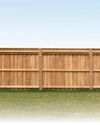
Unless you have been living under a rock, you are bound to have come across one of the many reports outlining the toxic chemicals that are used in herbicides and their long-term effects on both human beings and the environment. As a result, environmentally friendly products with active ingredients such as vinegar, salt, soap and essential oils have gained popularity.
As more earth-friendly weed killers hit the market every growing season, I wanted to chat with an expert about what they are and how they work.
MEET THE EXPERT
HEATHER JOHNSON IS THE LEAD HORTICULTURALIST AT BACHMAN'S FLORAL & GARDEN.
CHOOSING THE RIGHT HERBICIDE
Whatever the time of year or the conditions, you can use environmentally friendly ways to get rid of unwanted weeds or grass-from preemergent to post-emergent, selective and nonselective varieties.
Here are several important notes about products with environmentally friendly active ingredients. First, "A lot of the organic options are burn-down herbicides," Johnson explains, "meaning the roots will remain intact and be able to regrow new shoots later."
Second, Johnson stresses that "salt and vinegar can remain in the soil after killing the intended weeds, which can affect the growth of wanted plants in the area later on." To choose what's best for your lawn or garden, Johnson advises to start by answering these three questions:
WHAT TYPE OF WEEDS ARE YOU TRYING TO REMOVE?
Common weeds Johnson sees most homeowners struggling to control are dandelions, creeping Charlie and crabgrass. Both dandelions and creeping Charlie are broadleaf weeds. "If your lawn is overrun with these, it's more likely that the health of the lawn is being impacted, and lawn care besides just weed removal needs to be done," Johnson said.
This story is from the {{IssueName}} edition of {{MagazineName}}.
Start your 7-day Magzter GOLD free trial to access thousands of curated premium stories, and 9,000+ magazines and newspapers.
Already a subscriber ? Sign In
This story is from the {{IssueName}} edition of {{MagazineName}}.
Start your 7-day Magzter GOLD free trial to access thousands of curated premium stories, and 9,000+ magazines and newspapers.
Already a subscriber? Sign In

7 Bicycle Maintenance Tips
Keep your bike in tiptop shape and ride safe!

SETTING FENCE POSTS WITH EXPANDING FOAM
Any fence builder knows you need strong posts for a strong fence, and that means backfilling the postholes with a dense, hard material other than dirt.

PEBBLE MOSAIC STEPPING STONES
COLLECT SOME RIVER ROCK AND MAKE YOUR OWN UNIQUE STEPPINGSTONE PATH

EARTH-FRIENDLY WEED KILLERS
HEALTHIER CHOICES FOR HUMANS AND THE ENVIRONMENT

DIY! HYDROPONIC GARDEN
FRESH VEGETABLES AT YOUR FINGERTIPS

GROW MINI VEGETABLES
GROW A GARDEN IN A TINY SPACE!

BUILD A VERTICAL GARDEN
TIME TO GROW UP!

MODERN WATER FOUNTAINS
A SPLASH OF PEACE FOR YOUR PATIO

9 ALTERNATIVE USES FOR SAWDUST
Every fully stocked wood shop has a table saw. You can usually find a pile of sawdust under it, even if it's used only occasionally. If a shop has a belt sander or band saw, there's probably another pile of finer sawdust under that. Even people without stationary tools have sawdust accumulation on their workbenches.

INSULATE WITH FOAM
IT'S A GREAT ALTERNATIVE TO FIBERGLASS